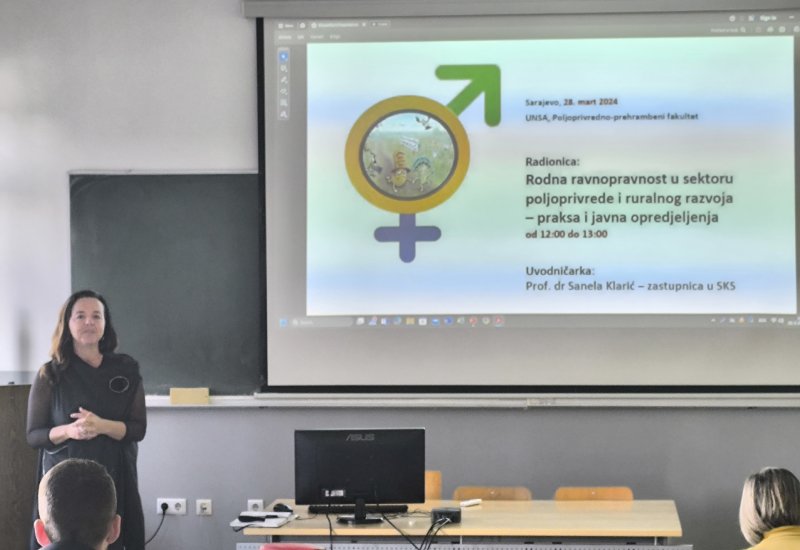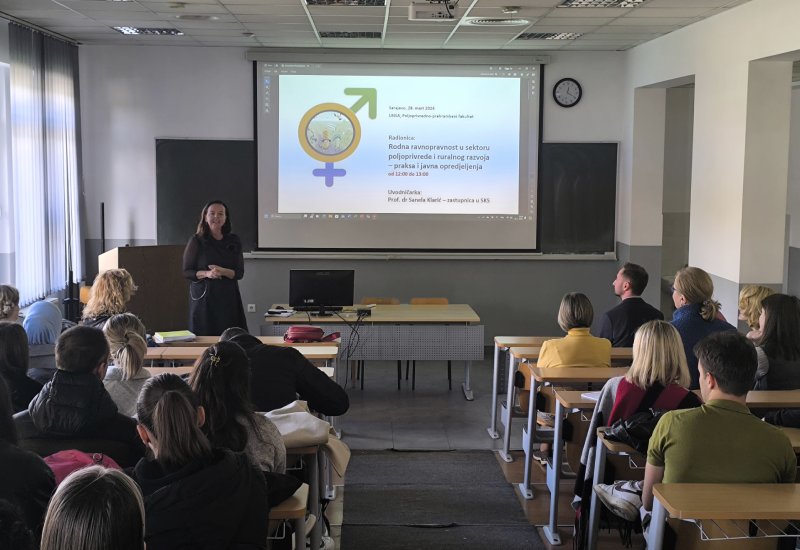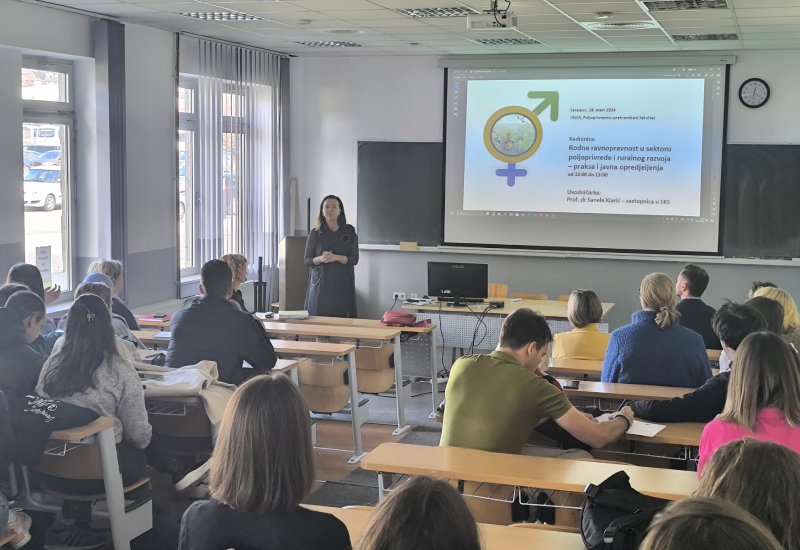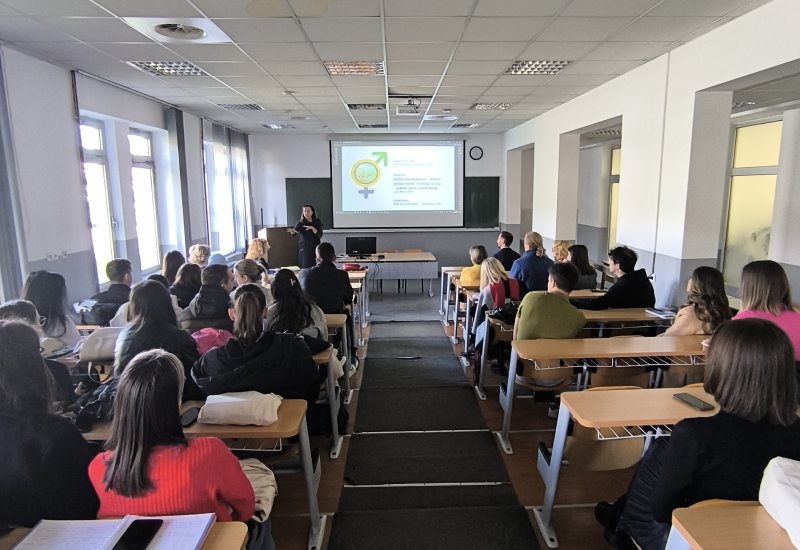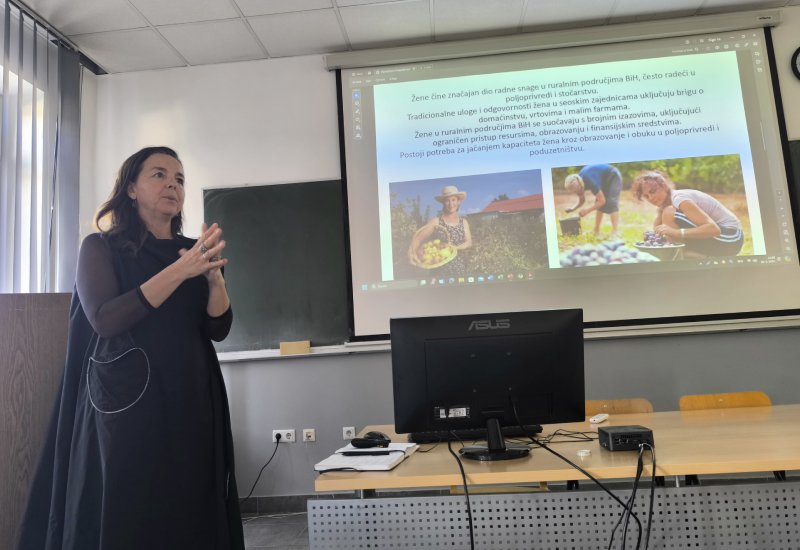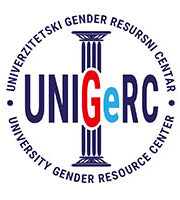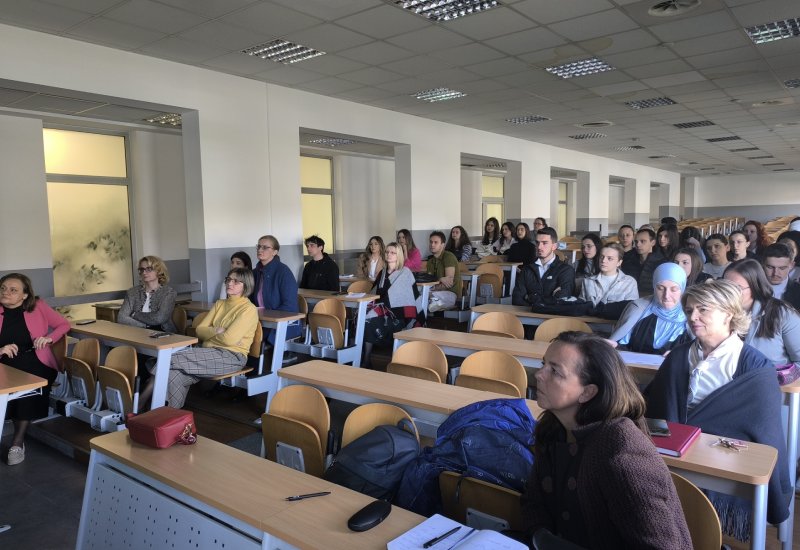On Thursday, March 28, 2024, as part of the UNIGEM project, in cooperation with the TPO Foundation, the University Gender Resource Center (UNIGeRC) and the Faculty of Agriculture and Food (PPF) in Sarajevo, a workshop was held for students and teaching staff, titled ‘Gender equality in the sector of agriculture and rural development – practice and public attitudes’.
The workshop was held by Prof. Dr. Sanela Klarić, who received her master’s degree and doctorate at the Faculty of Architecture of the University of Sarajevo, on the topic of sustainable architecture and natural materials as a potential for balanced and sustainable socio-economic development of Bosnia and Herzegovina.
Prof. Dr. Klarić is the president of the FBiH Chamber of Engineers, and the founder and advisor of the Green Building Council Association, which brings together experts from various sectors, such as architecture, economics, rural development, education, nutrition, the environment and European integration, with the aim of designing and implementing sustainable projects that bring prosperity of Bosnia and Herzegovina. Since 2021, she has been a member of the Global Political Alliance for the Green New Deal in the world.
The workshop, held at the Faculty of Agriculture and Food, was an opportunity to present that gender equality is one of the proclaimed, and accepted by BiH, development goals of the UN, as part of the 2030 Agenda. Support for strengthening gender equality in all spheres of BiH was publicly expressed. Still, in practice the stated does not have results and improvements, what impacts the development potential of each and every sector of the economy, as well as BiH society as a whole. Therefore, this workshop aimed to open a space for discussion about the current legal framework, about the level of understanding of this topic by both the public and decision-makers, and also to ask how the ‘professionals’ treat this issue, given the real problems and needs. The workshop pointed out the basic directions of action in this area in order to ensure assistance to decision makers and help them make progress and prepare initiatives.
